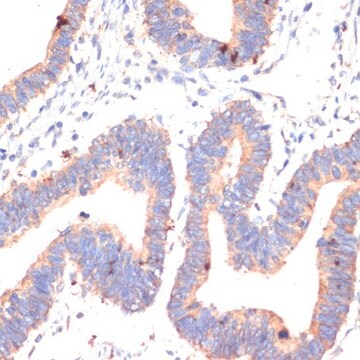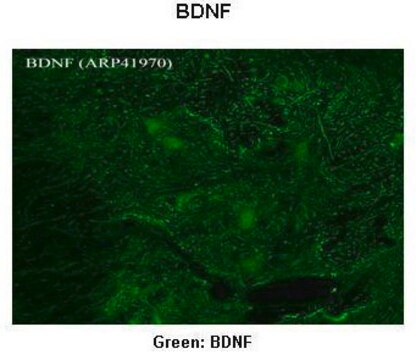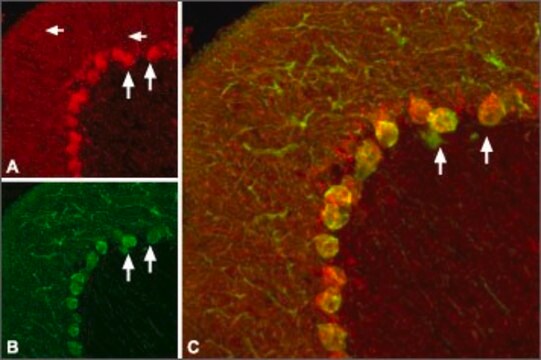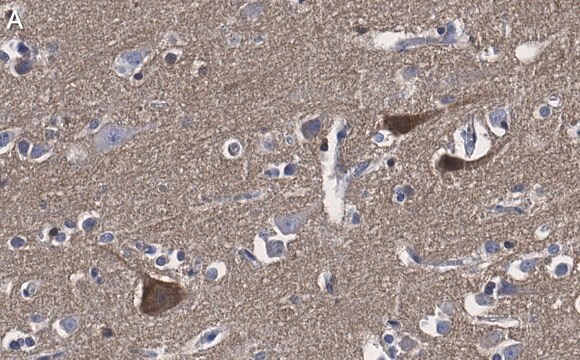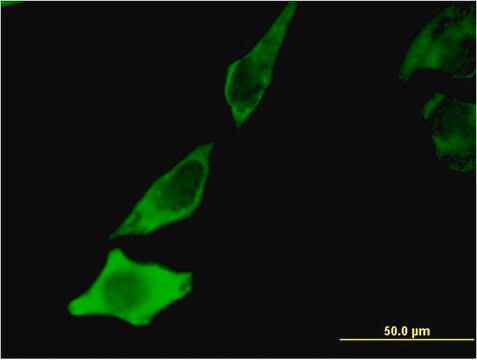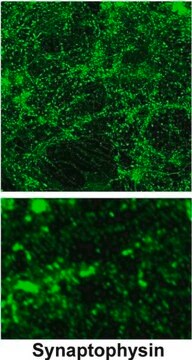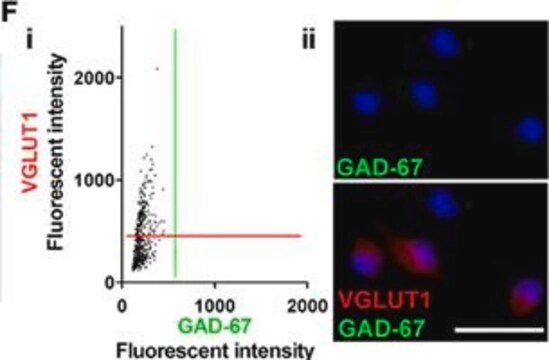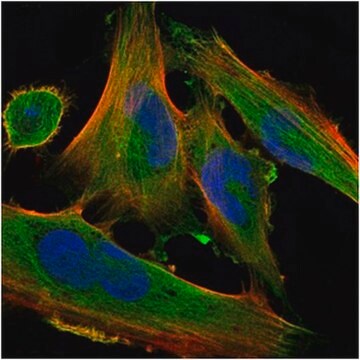SAB4200744
Anti-BDNF antibody, Mouse Monoclonal
clone BDNF129-13, purified from hybridoma cell culture
Sinonimo/i:
Anti-Abrineurin, Anti-Brain-derived neurotrophic factor
About This Item
Prodotti consigliati
Origine biologica
mouse
Livello qualitativo
Coniugato
unconjugated
Forma dell’anticorpo
purified from hybridoma cell culture
Tipo di anticorpo
primary antibodies
Clone
BDNF129-13, monoclonal
Stato
buffered aqueous solution
PM
~12 kDa
Reattività contro le specie
human
Concentrazione
~1.0 mg/mL
tecniche
immunoblotting: 2-4 μg/mL using lysate of human HEK-293T cells over-expressing human BDNF protein
immunocytochemistry: suitable
immunohistochemistry: 20-40 μg/mL using pronase retrieved formalin-fixed, paraffin-embedded human cerebellum sections
immunoprecipitation (IP): 10-20 μg/mL using lysate of human HEK-293T cells over-expressing human BDNF protein
Isotipo
IgG2b
N° accesso UniProt
Condizioni di spedizione
dry ice
Temperatura di conservazione
−20°C
modifica post-traduzionali bersaglio
unmodified
Informazioni sul gene
human ... BDNF(627)
Descrizione generale
Immunogeno
Applicazioni
- immunoblotting
- immunohistochemistry
- immunoprecipitation
- immunocytochemistry
Azioni biochim/fisiol
Stato fisico
Non trovi il prodotto giusto?
Prova il nostro Motore di ricerca dei prodotti.
Codice della classe di stoccaggio
10 - Combustible liquids
Punto d’infiammabilità (°F)
Not applicable
Punto d’infiammabilità (°C)
Not applicable
Scegli una delle versioni più recenti:
Certificati d'analisi (COA)
Non trovi la versione di tuo interesse?
Se hai bisogno di una versione specifica, puoi cercare il certificato tramite il numero di lotto.
Possiedi già questo prodotto?
I documenti relativi ai prodotti acquistati recentemente sono disponibili nell’Archivio dei documenti.
Il team dei nostri ricercatori vanta grande esperienza in tutte le aree della ricerca quali Life Science, scienza dei materiali, sintesi chimica, cromatografia, discipline analitiche, ecc..
Contatta l'Assistenza Tecnica.